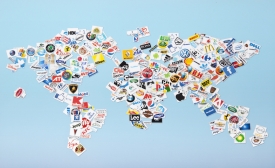globalization
Mission trips have been a significant part of religious life for years. Churches around the United States use these trips to reach foreign publics, either to spread their religious beliefs by proselytizing, or purely by engaging in a service project in another community to do good. [...] Globalization has brought about increased religious transnational activity around the world.
As the UK prepares to leave the EU, it has a huge number of considerations to ensure its economy prospers. One, which is perhaps overlooked, is Britain’s language policy and how important this is as an economic resource. A strategic language policy and the cultivation of language experts in post-Brexit Britain are essential if it wants to connect with fresh markets overseas. This has long been a feature of international diplomacy—stretching back long before globalization as we know it.
Cybercapacity is an aggregate of a number of factors, from the quality and strength of a country's digital infrastructure (access to electricity, internet quality, and internet penetration) to its innovation environment, political space (governed by laws on freedom of expression), and soft power (how much other actors desire products of its technology industry).
While the world of business is increasingly connected and integrated on the global scale, the nationality of a brand at times attains growing political significance in today’s marketplace. Some argue that with globalization a brand’s nationality—its perceived national association—has become so tenuous that contemporary consumers may not care where a brand is from or even know the country-of-origin information of the brands they purchase.

Jay Wang on the growing ambiguity of the "Made in" label.
The match also represented something else: a case study in the globalization of European soccer, with a decidedly Chinese flavor. Both teams were acquired in 2016 by Chinese investors for a total exceeding $1 billion, a capstone to a flurry of Chinese purchases of European soccer clubs over the past two years. [...] China’s big soccer play is of a piece with Chinese President Xi Jinping’s “Chinese Dream” idea of attaining national greatness
The American withdrawal from the Trans-Pacific Partnership trade agreement has opened the door to China to try and strike a pose as the leading defender of liberalized trade and globalization. The public face of this new push is none other than China’s president. This month, Xi became the first Chinese president to speak at the World Economic Forum in Davos where he set forth the case for continuing to expand global trade.
In order to add momentum to African economies, Gerd Müller, Germany’s minister for economic cooperation and development, and Sigmar Gabriel, the country’s minister for economic affairs, have launched a joint initiative. The approach fits their understanding of how to manage globalisation equitably. [...] about 1000 of 400,000 internationally active German private-sector companies have invested in Africa so far.







